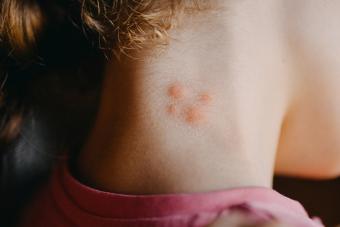
If you've ever wished you knew precisely how to treat flea bites after having one of these blood-sucking insects wreak havoc on your skin, you're not alone. Fleas bite millions of people daily, and that means millions are also walking around with uncomfortable, itchy skin. Learning how to effectively recognize and treat these pesky wounds can make a big difference.
Flea Bites and Their Symptoms
Fleas are no strangers to human skin. These little insects may seem harmless enough, but they feed on animals and suck their blood. Though they typically live on cats and dogs, they can also be found on human beings. When they do bite human skin, it is usually in one or more of these key regions: the ankles, armpits, waist, knee bends and elbow bends.
When a flea bites, it uses its jaw to puncture the skin. When this occurs, any number of symptoms may follow within hours of the bite. Among them are the following:
- Allover itch or localized itch that may occasionally be severe
- Hives
- Rash dominated by small bumps that may itch or even bleed
- Swelling
- Blanching (whitening) of skin when touched
How to Treat Flea Bites
The very idea of a flea bite is enough to make some people cringe in discomfort! Besides the nagging itch, a bite can also result in a rash that may even spread beyond the injury site. Combine that with swelling and you can count on feeling fairly miserable if the bite is bad enough.
Fortunately, flea bites don't have to spell disaster. Simply knowing how to treat the bite can put you back on the right track and encourage healing. Here are a few tips on how to treat flea bites:
- Clean the injury site thoroughly with cool water and mild soap, then pat it dry.
- If swelling is present, apply an ice pack to the injury site to provide relief.
- Use an over-the-counter, one percent hydrocortisone cream to relieve itching and reduce swelling.
- If needed, don't hesitate to take a dose of Benadryl or another antihistamine to relieve an extremely intense itch.
- It can be difficult, but do your best to avoid scratching the injury site. This will only serve to worsen your symptoms and may even cause an infection.
Get Rid of Them
It's important to understand that the prime goal should be to eradicate the fleas themselves. If you suspect the fleas have moved on to your skin after afflicting your pets, use an insecticide treatment specifically formulated to eliminate them. It may take a bit of persistence and time to really see a difference. Note that infants and young children should not be present while these insecticides are being administered. If you find that the treatments do not work, hire a professional exterminator to come in and do the job instead. It's worth your skin's - and your pets' - comfort!
Also note that it's important to wash your bedding in hot water once you've been bitten. If you have pets, wash theirs, as well. Once a flea makes itself at home in your bed, you will continue to experience bites until they have been eliminated. Simply roll up your bedding, which will make it difficult for fleas or flea eggs to fall onto your floor, and use soapy, extra hot water to wash. Then use the hot cycle in the dryer to finish.
Products to Try
Drugstores are full of products formulated to keep you comfortable as you head outdoors to enjoy the great summer weather. However, you may already have a few helpful items in your house! Calamine lotion is a top-notch itch fighter that is known to help relieve the discomfort associated with flea bites. Another oft-recommended product is the popular Avon Skin-So-Soft bath oil. Its woodsy scent is highly unattractive to fleas (who happen to have a very keen sense of smell). Apply a bit to your skin to ward off fleas.







